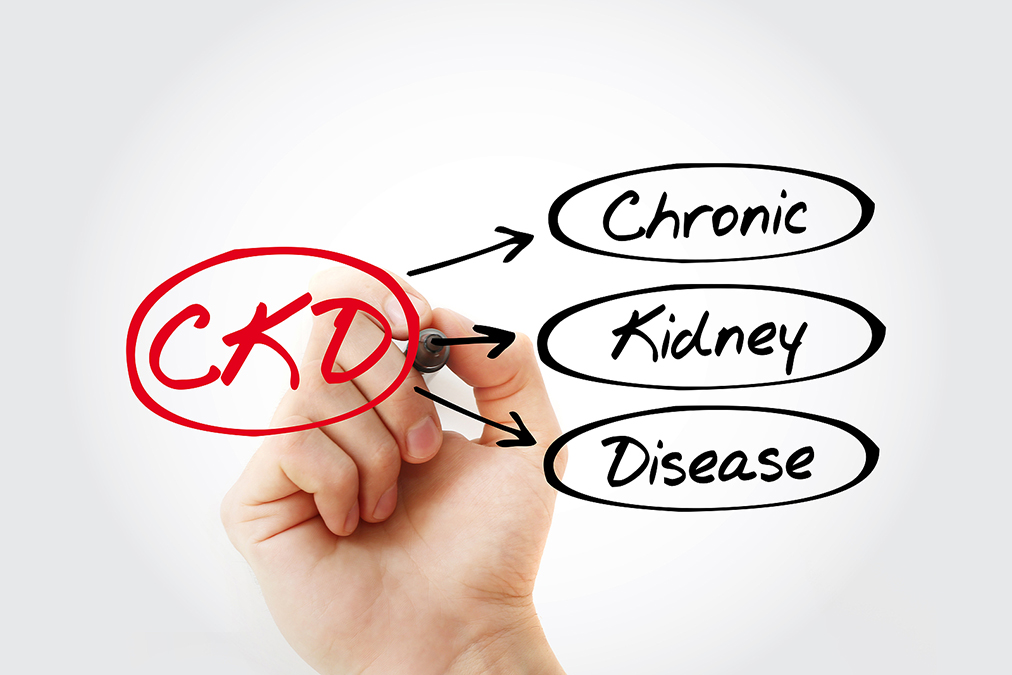 There is a simple, effective treatment for chronic kidney disease (CKD). Ninety percent of doctors agree that this treatment is effective in slowing down or stopping CKD in its tracks.
There is a simple, effective treatment for chronic kidney disease (CKD). Ninety percent of doctors agree that this treatment is effective in slowing down or stopping CKD in its tracks.
Yet, they very seldom prescribe it to their patients.
Why?
A new study published in the journal Kidney Medicine asked that exact question. And the answer is shocking.
The researchers used the National Kidney Foundation database, the Academy of Nutrition and Dietetics database, and the National Kidney Foundation 2019 Spring Clinical Meetings mobile app to recruit their subjects via email. They asked these subjects to complete anonymous surveys regarding their attitudes about and experiences with nutrition therapy.
These subjects included 348 kidney disease patients, 66 registered dietitian nutritionists who regularly saw kidney disease patients, and 30 doctors.
Interestingly enough, an overwhelming number of participants had positive perceptions of nutrition therapy. They believed that it could manage the complications of kidney disease and slow (or prevent) its progression.
The patients wanted to be referred for this therapy, and almost 80% agreed that it was effective.
Notwithstanding this, 48% of the patients reported that they had never been referred for nutrition therapy by their doctors and that they had never seen a nutritionist. Only those with diabetes had been referred.
Almost 90% of doctors and 96% of nutritionists agreed that nutrition therapy was effective. Still, most of them reported that they had not referred patients, and the nutritionists reported that they did not offer the treatment.
But why not? What is going on here?
First, most of the subjects were afraid that their insurance didn’t have coverage for nutrition therapy for chronic kidney disease.
This explains why doctors don’t refer patients and why patients don’t ask for it. In addition, the nutritionists complained that they were sometimes not reimbursed by medical insurers or that the insurers’ codes were too complicated to use, and that these problems put them off from providing this therapy.
Secondly, patients complained that there weren’t enough nutritionists who were qualified to provide the therapy. The scientists found that this was probably true and that the National Institutes of Health were starting to train more.
Thirdly, while almost 90% of the patients and 78% of the nutritionists believed that patients could stick to nutrition and lifestyle advice, only 53% of doctors thought they could—hence, another possible reason for not referring them for nutrition therapy.

 Overcoming IBD
Overcoming IBD Multiple Sclerosis
Multiple Sclerosis Banishing Bronchitis
Banishing Bronchitis Gum Disease Gone
Gum Disease Gone Overcoming Onychomycosis
Overcoming Onychomycosis Neuropathy No More
Neuropathy No More The Prostate Protocol
The Prostate Protocol Brain Booster
Brain Booster
 Ironbound
Ironbound
 Solution for Shingles
Solution for Shingles
 The Bone Density Solution
The Bone Density Solution
 The Ultimate Healing Protocol
The Ultimate Healing Protocol
 The Parkinson's Protocol
The Parkinson's Protocol
 The Chronic Kidney Disease Solution
The Chronic Kidney Disease Solution
 Overthrowing Anxiety
Overthrowing Anxiety The Fatty Liver Solution
The Fatty Liver Solution The Hypothyroidism Solution
The Hypothyroidism Solution
 The End of Gout
The End of Gout The Blood Pressure Program
The Blood Pressure Program
 The Oxigized Cholesterol Strategy
The Oxigized Cholesterol Strategy
 Stop Snoring And Sleep Apnea Program
Stop Snoring And Sleep Apnea Program
 The Arthritis Strategy
The Arthritis Strategy The Vertigo & Dizziness Program
The Vertigo & Dizziness Program The 3-Step Diabetes Strategy
The 3-Step Diabetes Strategy Hemorrhoids Healing Protocol
Hemorrhoids Healing Protocol The Erectile Dysfunction Master
The Erectile Dysfunction Master Weight Loss Breeze
Weight Loss Breeze The IBS Program
The IBS Program The Insomnia Program
The Insomnia Program The Migraine and Headache Program
The Migraine and Headache Program The Neck Pain Solution
The Neck Pain Solution The Menopause Solution
The Menopause Solution The Ejaculation Master
The Ejaculation Master The TMJ Solution
The TMJ Solution The Acid Reflux Solution
The Acid Reflux Solution The Fibromyalgia Solution
The Fibromyalgia Solution The Psoriasis Strategy
The Psoriasis Strategy